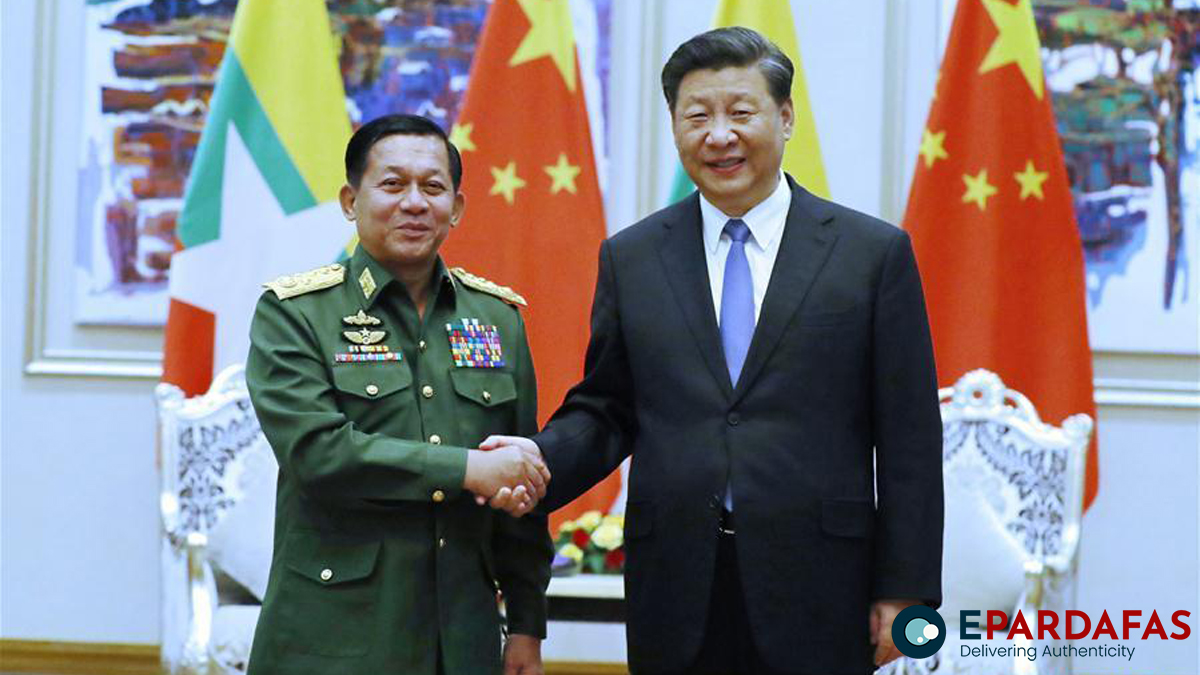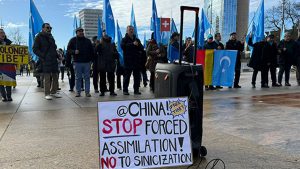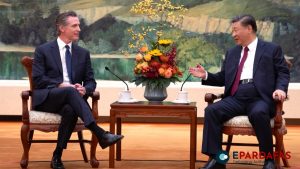
Anti-China Sentiment on the Rise in Myanmar Following Consulate Attack, Analysts Say

An attack on the Chinese consulate in Mandalay, Myanmar’s second-largest city, highlights intensifying anti-China sentiment fueled by perceptions of Beijing’s support for the ruling military junta, according to experts.
On October 18, an explosive device hit the Chinese consulate, damaging the building but causing no casualties. This incident marks the first attack on a Chinese diplomatic facility in Myanmar since the anti-China riots of 1967 in Yangon. Myanmar’s military officials described the explosion as damaging some roof tiles and pledged to identify and apprehend the responsible “terrorists.” However, two weeks later, no suspects have been named, and no group has claimed responsibility.
Ye Myo Hein, a senior expert at the United States Institute of Peace, said anti-China sentiment has intensified since Myanmar’s military, led by General Min Aung Hlaing, took power in a coup on February 1, 2021. “Immediately following the coup, the public perceived China as supportive of the junta, resulting in strong anti-Chinese sentiment,” he explained.
China’s Renewed Backing for Junta Stirs Resentment
China initially distanced itself from the junta post-coup but recently re-established support, sparking renewed public resentment. Hein warns that Beijing’s pro-junta stance could provoke further backlash. “If China continues its support, it will likely face growing public animosity,” he said.
The junta, widely sanctioned by Western nations, has maintained some alliances with Russia and China. David Scott Mathieson, a seasoned analyst on Myanmar, points out that anti-Chinese anger spans both the support for the junta and perceived backing of China in the conflict surrounding Kokang, a Chinese ethnic stronghold in Myanmar’s Shan State. Kokang, home to 90% ethnic Chinese, has been a contentious area as ethnic pro-democracy groups battle military control, capturing critical trade routes along the China-Myanmar border.
Although Beijing helped broker a brief ceasefire in Kokang in January, tensions quickly reignited. China did successfully enlist local ethnic groups to curb Chinese crime rings in northern Shan state, but rebel forces have continued to gain ground. In late July, after the capture of Lashio, another critical town, Chinese Foreign Minister Wang Yi met Myanmar’s military leader in Naypyitaw, signaling Beijing’s growing concerns over the junta’s deteriorating hold.
Public Frustration Brews Amid Military Crackdowns
Anti-China protests and attacks on Chinese assets are not new. After the 2021 coup, protests against China erupted across Myanmar, including the torching of Chinese-owned factories during mass demonstrations. A Chinese resident in Myanmar told that he sees the consulate attack as “an expression of dissatisfaction with China,” rather than terrorism.
Mathieson warned that anti-China sentiment could worsen if Beijing does not address the brewing public anger. “China has to take this rising public anger very seriously, as it could potentially descend into violence in urban areas against Chinese nationals and economic assets,” he said, adding that Beijing’s “cynical support” for the junta risks severe consequences for Myanmar’s Chinese communities.
Decades of Controversial Support
China’s history of military support for Myanmar’s rulers spans three decades, during which it has supplied significant arms to the regime. Rights groups report these arms have enabled widespread repression, with nearly 6,000 people killed since the coup. China, Myanmar’s largest trade partner, has also heavily invested in the nation’s oil and gas sectors, further binding the countries economically.
As diplomatic ties continue between Beijing and Myanmar’s junta, with Min Aung Hlaing expected to visit China in November, analysts predict Beijing’s support for Myanmar’s military will only deepen resentment among Myanmar’s public.












Comments